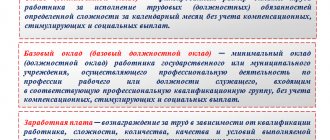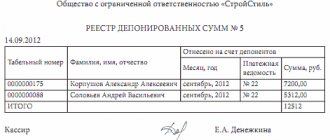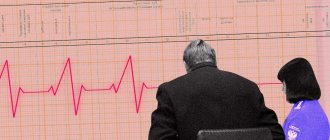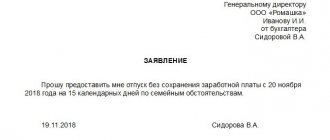The minimum wage is a “threshold” of remuneration in monetary terms for a fully worked period, below which, regardless of qualifications and job responsibilities, it is prohibited to pay an employee at the legislative level. The indicator regulates the chain of relationships “hired employee – employer – revenues to the budget and extra-budgetary funds” and differs in the regions of Russia.
Minimum wage size in 2021
A project to change the methodology for calculating the minimum wage has been submitted to the State Duma.
The current version provides that from January 1 of the corresponding year the minimum wage is set no lower than the subsistence level of the working population in the country as a whole for the second quarter of the previous year. This system has existed for the last two years - since January 1, 2021. Based on this calculation logic, then for 2021 the minimum wage should be 12,392 rubles . And this is confirmed by Order of the Ministry of Labor dated August 28, 2020 No. 542n.
However, the draft law, which is currently being considered in the first reading, proposes a higher minimum wage in 2021 - 12,792 rubles. Apparently, the initiative is related to the consequences of the prolonged pandemic.
New methodology for calculating the minimum wage
The proposal is that the minimum wage should now depend on the median salary for the previous year.
The bill clarifies that starting from 2021, the ratio of the minimum wage to the median salary will be set at 42%. This ratio will be reviewed at least once every 5 years, taking into account socio-economic circumstances.
At the same time, the minimum wage cannot be lower than the subsistence level of the working population as a whole for the next year.
What is median per capita income
By this concept we should mean the amount of money income, relative to which half of the population has an average per capita income below this value, the other half - above this value.
The median per capita income is calculated taking into account the collected statistical information.
Salary below the minimum wage: responsibility and fines
Why is the minimum wage important? For many reasons. First of all, wages depend on it. The employer does not have the right to pay full-time employees a salary below the minimum wage, as stated in Art. 133 of the Labor Code of the Russian Federation: “The monthly salary of an employee who has fully worked the standard working hours during this period and fulfilled labor standards (job duties) cannot be lower than the minimum wage.”
Rostrud on its official website clarifies that wages may be less than the minimum wage if the employee works part-time or part-time. “The salary may be less than the minimum wage. In addition to salary, wages include compensation payments, various bonuses and incentive payments (Article 129 of the Labor Code of the Russian Federation). Thus, taking into account all salary increases or incentives, the employee receives an amount greater than or equal to the minimum wage. If the employee’s salary is still less than the established minimum wage, the employer must make an additional payment up to the minimum wage.”
Conducting business according to the law. Services for individual entrepreneurs and LLCs less than 3 months old
Details
The employer must understand that he is at great risk if his employees receive wages below the minimum wage. The labor inspectorate may fine him. According to Part 6 of Art. 5.27 of the Code of Administrative Offenses of the Russian Federation, such a violation entails a warning or the imposition of an administrative fine on officials in the amount of 10,000 to 20,000 rubles; for legal entities - from 30,000 to 50,000 rubles.
For repeated violations, the fine for officials ranges from 20,000 to 30,000 rubles. or disqualification for a period of one to three years; for legal entities - from 50,000 to 100,000 rubles.
Salary is less than the minimum wage for a part-time worker
Rostrud experts draw attention to the fact that in case of part-time work, remuneration should not be lower than the minimum wage, calculated in proportion to the time worked - depending on output or on other conditions determined by the employment contract (Article 285 of the Labor Code of the Russian Federation).
Thus, the wages of a part-time worker should not be lower than the minimum wage, calculated in proportion to the time worked.
What is wages and its minimum amount?
Wages are monetary remuneration for work, the amount of which directly depends on:
- skill level;
- indicators of the complexity of the assigned work;
- conditions of employment;
- the presence or absence of additional charges (compensation, incentives, etc.).
At the same time, discrimination is prohibited during the determination and adjustment of wages or conditions of employment.
Thus, if there are equal qualifications and the same conditions of employment, the same remuneration must be accrued, otherwise there is the possibility of going to court to protect personal interests.
Monthly remuneration is calculated in cash in Russian rubles.
At the same time, in accordance with the collective or labor agreement based on the written statement of the worker, payment for work can be expressed in other forms that do not contradict the norms of law and international agreement in particular.
For your information! In Russia, payments must be made in the national currency (rubles), which is why there cannot be other variations when paying wages.
The “minimum wage” means the amount that is assigned to employees provided that they have worked the established norm for the month.
It follows that employers do not have the legal right to charge monthly remuneration less than the established minimum.
The minimum wage is established by the legislation of the Russian Federation and is mandatory for compliance by all Russian employers without exception.
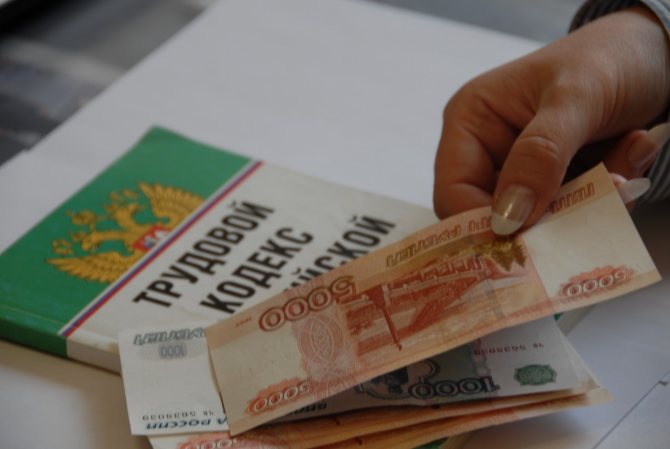
The minimum wage indicator is established annually by adopting relevant Resolutions. The minimum wage is additionally used when determining the amount of benefits accrued due to temporary disability, etc.
The minimum wage in 2021 is:
- from January 9489 rub.;
- from May 1—RUB 11,163.
The subsistence level means the amount of income per person, which will be sufficient for his normal life. The value is established by calculating the cost of the consumer basket, which additionally includes mandatory monthly payments and services.
There are several types:
- for employed persons;
- for pensioners;
- for minor children.
Such information is used by the state to analyze the current standard of living, as well as income for all segments of the population and during the period of budget formation.
Depending on the region of residence, the cost of living indicators vary.
Regional minimum wage
According to Art. 133.1 of the Labor Code of the Russian Federation, in addition to the federal minimum wage, which is valid throughout Russia, regions can set their own minimum wage. It is determined taking into account socio-economic conditions and the cost of living of the working population in the corresponding subject of the Russian Federation.
By law, the minimum wage in a constituent entity of the Russian Federation cannot be lower than the minimum wage established by federal law. At the same time, regional authorities have the right to equate the minimum wage to the federal standard or increase it.
Employers have a period of 30 days during which they can send to the labor body a written refusal to join the regional agreement on the minimum minimum wage in a specific subject. Silence automatically means consent, that is, if they do not refuse, they join the agreement.
The minimum wage in the constituent entities of the Russian Federation: table
Minimum wage in Moscow for 2021
The minimum wage in Moscow is 20,195 rubles. established by Decree of the Moscow Government dated September 10, 2019 No. 1177-PP and is already in force from October 1, 2021.
Minimum wage in the Leningrad region from January 1, 2021
On November 28, 2021, a Regional Agreement on the minimum wage was concluded in the Leningrad Region for 2021, according to which the minimum wage here is set at 12,800 rubles.
It follows from this that the monthly salary of a person working in the Leningrad region and in an employment relationship with an employer subject to a regional agreement cannot be lower than the minimum wage in the Leningrad region if this person has fully worked the standard working hours during this period and fulfilled labor standards.
In connection with the increase in the minimum wage, the question often arises about salary indexation - is it mandatory? We previously wrote about this in the article “Wage Indexation: An Employer’s Right or Obligation?”
Is there a maximum wage established in the Russian Federation?
The maximum wage, in contrast to the minimum, which is established in accordance with Part 1 of Art.
133 of the Labor Code of the Russian Federation, not defined by law. If it were established, then, along with the minimum wage, it would allow influencing the redistribution of the level of wealth in society. According to economic theory, setting an upper limit on wages can limit inflationary processes. In Russia, instead of the maximum amount of earnings, a maximum base has been defined for making deductions related to mandatory pension and social insurance or the calculation of social benefits due to employees.
Limit base for calculating deductions
When calculating contributions to compulsory pension insurance, the following points should be taken into account:
- If earnings for the year did not exceed the maximum indicator - 1,292,000 rubles. (the limit was set in 2021 by Government Decree “On the maximum value..." dated November 6, 2019 No. 1407), then contributions are withheld at the rate of 22%.
- If the employee’s annual earnings exceed this limit, then additional contributions of 10% will be charged on the excess amount.
When calculating social insurance contributions, you should, in accordance with subsection. 2 hours 1 tbsp. 426 NK, keep in mind the following:
- If the salary does not exceed the maximum, then deductions of 2.9% are charged.
- If earnings exceed this value, additional deductions other than those that have already been withheld are not made.
Limit base for calculating benefits
According to Part 3.2 of Art. 14 of the Law “On Compulsory Social Insurance...” dated December 29, 2006 No. 255-FZ, when calculating benefits for temporary disability and in connection with maternity, the employee’s annual earnings are taken into account within the maximum base designated for calculating insurance contributions. This limit value is established in accordance with paragraph 3 of Art. 421 NK.
Due to the fact that in 2021 the limit for calculating contributions to compulsory social insurance was increased, the maximum value of annual earnings for calculating temporary disability benefits (for example, in case of illness) has also increased. This means that for an employee whose earnings for 2021 exceeded the maximum amount of earnings from which insurance premiums are paid, the amount of sick leave is calculated only from the maximum amount. The same applies to maternity payments.
Read more about calculating insurance premiums in ConsultantPlus. If you don't have access to the service yet, you can get it for 2 days for free.
Subscribe to our newsletter
Yandex.Zen VKontakte Telegram
Minimum wage when setting wages for LLC branch employees
There are often situations when an LLC is registered in one subject of the Russian Federation, and its employees work in a branch of the LLC in another subject. In this case, what minimum wage should we be guided by when setting salaries for branch employees?
In this case, it is legal to set the salary taking into account the minimum wage established in the subject where the LLC branch is located.
Calculate your salary and benefits taking into account the increase in the minimum wage from 2021
As stated above, in the regions the minimum wage can be established by regional agreement. In accordance with Part 2 of Art. 133.1. The Labor Code of the Russian Federation, the minimum wage in a constituent entity of the Russian Federation can be established for employees operating in the territory of the corresponding constituent entity of the Russian Federation, with the exception of employees of organizations financed from the federal budget.


